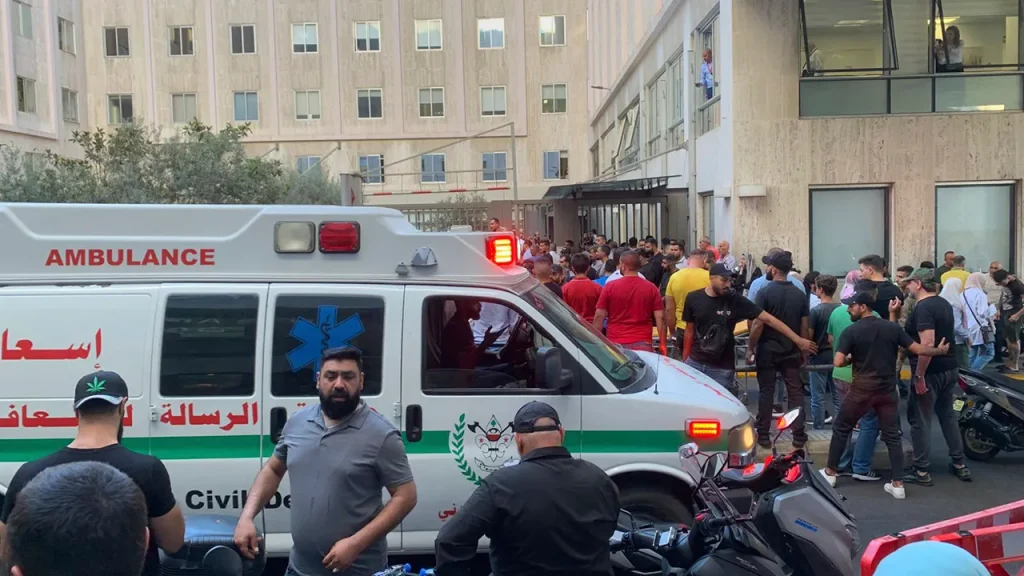The Russian government has condemned the apparent use of exploding pagers to strike thousands of individuals connected with Hezbollah in Lebanon. Over 3,000 members of the Iran-backed terror group were killed in the explosions, which occurred simultaneously across the country. The Kremlin spokesman expressed concerns about the escalating tensions in the region and the potential for further violence. The pagers that exploded were reportedly made in Hungary, according to a Taiwanese company.
The explosions occurred in areas where Hezbollah has a strong presence, including a southern Beirut suburb and in the Beqaa region of eastern Lebanon, as well as in Damascus. Russian Foreign Ministry spokeswoman Maria Zakharova denounced the attack as a violation of Lebanon’s sovereignty and a challenge to international law. The use of unconventional weapons in this attack has raised concerns about the dangerous consequences and the potential for further escalation along the Lebanese-Israeli border.
A senior U.S. official has confirmed that Israel was behind the explosions, as reports of fresh blasts continue to emerge in Beirut. Lebanon’s Health Minister reported severe injuries, including eye injuries and amputations. Iranian President Masoud Pezeshkian expressed a desire to strengthen cooperation with Russia in response to the attack. He highlighted the importance of developing and deepening relations between Iran and Russia to mitigate the impact of sanctions.
The Russian government’s condemnation of the exploding pagers reflects their concerns about the escalating tensions in the region and the potential for further violence. The use of unconventional weapons in this attack has raised concerns about the dangerous consequences and the potential for further escalation along the Lebanese-Israeli border. The involvement of Israel in the explosions has stirred controversy and further heightened tensions in the region. Iran’s intent to strengthen cooperation with Russia in response to the attack highlights the potential impact on broader diplomatic relations in the region.
The explosions in Lebanon have caused significant casualties and raised concerns about the use of unconventional weapons in the attack on Hezbollah members. The widespread destruction and injuries resulting from the explosions have intensified the ongoing conflict in the region. The condemnation of the attack by Russia and other countries reflects the gravity of the situation and the need for diplomatic efforts to de-escalate tensions. The involvement of Israel in the explosions has further complicated the situation and heightened concerns about the potential for a new round of violence in the region.
The Russian government’s condemnation of the explosions in Lebanon highlights the broader geopolitical implications of the attack. The use of exploding pagers as a method of targeting individuals associated with a terrorist group has raised concerns about the implications for international law and the potential for further violence in the region. The involvement of Israel in the attack has fueled speculation and raised questions about the motives behind the explosions. As diplomatic efforts continue to address the fallout from the attack, the region remains on edge and facing the threat of further violence and escalation.


